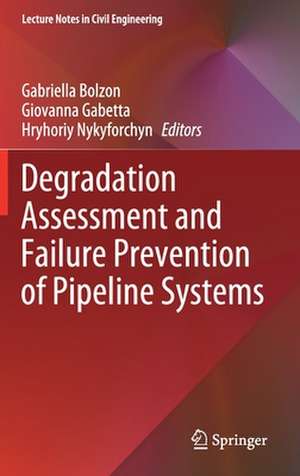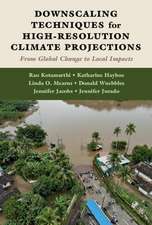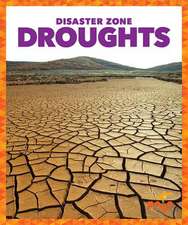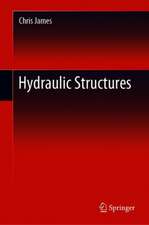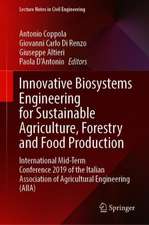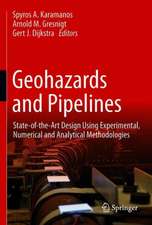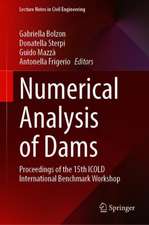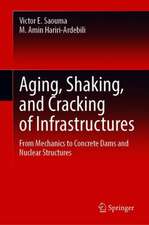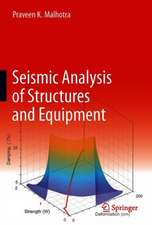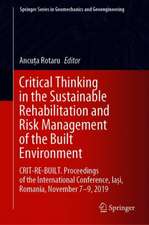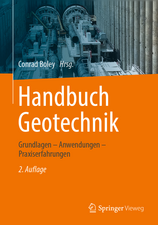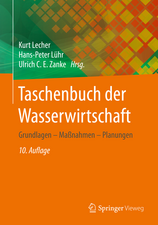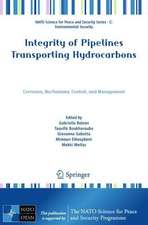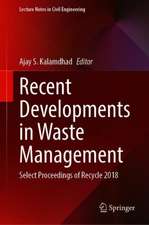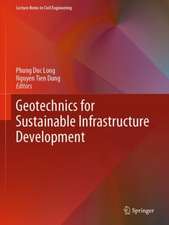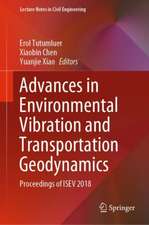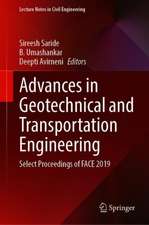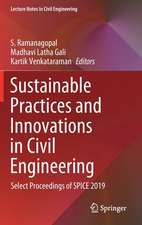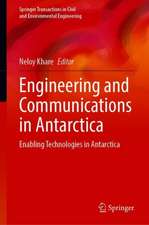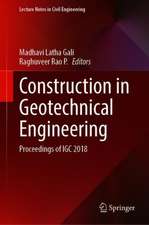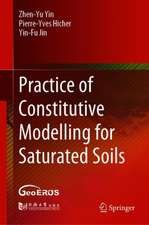Degradation Assessment and Failure Prevention of Pipeline Systems: Lecture Notes in Civil Engineering, cartea 102
Editat de Gabriella Bolzon, Giovanna Gabetta, Hryhoriy Nykyforchynen Limba Engleză Hardback – 11 sep 2020
| Toate formatele și edițiile | Preț | Express |
|---|---|---|
| Paperback (1) | 942.94 lei 6-8 săpt. | |
| Springer International Publishing – 12 sep 2021 | 942.94 lei 6-8 săpt. | |
| Hardback (1) | 948.92 lei 6-8 săpt. | |
| Springer International Publishing – 11 sep 2020 | 948.92 lei 6-8 săpt. |
Din seria Lecture Notes in Civil Engineering
- 18%
 Preț: 1232.26 lei
Preț: 1232.26 lei - 18%
 Preț: 1389.30 lei
Preț: 1389.30 lei - 18%
 Preț: 950.52 lei
Preț: 950.52 lei - 18%
 Preț: 1003.38 lei
Preț: 1003.38 lei - 18%
 Preț: 1401.93 lei
Preț: 1401.93 lei - 18%
 Preț: 1870.73 lei
Preț: 1870.73 lei - 18%
 Preț: 956.81 lei
Preț: 956.81 lei - 23%
 Preț: 586.51 lei
Preț: 586.51 lei - 24%
 Preț: 1192.22 lei
Preț: 1192.22 lei - 18%
 Preț: 950.52 lei
Preț: 950.52 lei - 18%
 Preț: 1565.29 lei
Preț: 1565.29 lei - 18%
 Preț: 1219.63 lei
Preț: 1219.63 lei - 18%
 Preț: 950.52 lei
Preț: 950.52 lei - 18%
 Preț: 1408.26 lei
Preț: 1408.26 lei - 18%
 Preț: 1579.49 lei
Preț: 1579.49 lei - 18%
 Preț: 1551.27 lei
Preț: 1551.27 lei - 18%
 Preț: 1392.46 lei
Preț: 1392.46 lei - 20%
 Preț: 1560.57 lei
Preț: 1560.57 lei - 18%
 Preț: 3692.22 lei
Preț: 3692.22 lei - 18%
 Preț: 1390.89 lei
Preț: 1390.89 lei - 24%
 Preț: 2401.68 lei
Preț: 2401.68 lei - 18%
 Preț: 2109.85 lei
Preț: 2109.85 lei - 18%
 Preț: 2577.86 lei
Preț: 2577.86 lei - 18%
 Preț: 1383.00 lei
Preț: 1383.00 lei - 18%
 Preț: 1566.90 lei
Preț: 1566.90 lei - 18%
 Preț: 2544.69 lei
Preț: 2544.69 lei - 18%
 Preț: 1397.82 lei
Preț: 1397.82 lei - 18%
 Preț: 1902.30 lei
Preț: 1902.30 lei - 18%
 Preț: 1843.11 lei
Preț: 1843.11 lei - 18%
 Preț: 1228.62 lei
Preț: 1228.62 lei - 18%
 Preț: 1000.20 lei
Preț: 1000.20 lei - 18%
 Preț: 1581.10 lei
Preț: 1581.10 lei - 18%
 Preț: 2163.50 lei
Preț: 2163.50 lei - 24%
 Preț: 1462.48 lei
Preț: 1462.48 lei - 18%
 Preț: 2140.65 lei
Preț: 2140.65 lei - 18%
 Preț: 961.55 lei
Preț: 961.55 lei - 18%
 Preț: 1008.11 lei
Preț: 1008.11 lei - 18%
 Preț: 2131.95 lei
Preț: 2131.95 lei -
 Preț: 385.46 lei
Preț: 385.46 lei - 18%
 Preț: 1377.46 lei
Preț: 1377.46 lei - 18%
 Preț: 1253.54 lei
Preț: 1253.54 lei - 18%
 Preț: 1250.39 lei
Preț: 1250.39 lei - 18%
 Preț: 1229.91 lei
Preț: 1229.91 lei - 18%
 Preț: 1227.52 lei
Preț: 1227.52 lei - 18%
 Preț: 1233.83 lei
Preț: 1233.83 lei - 18%
 Preț: 1258.29 lei
Preț: 1258.29 lei
Preț: 948.92 lei
Preț vechi: 1157.22 lei
-18% Nou
Puncte Express: 1423
Preț estimativ în valută:
181.58€ • 189.97$ • 150.84£
181.58€ • 189.97$ • 150.84£
Carte tipărită la comandă
Livrare economică 02-16 aprilie
Preluare comenzi: 021 569.72.76
Specificații
ISBN-13: 9783030580728
ISBN-10: 3030580725
Pagini: 252
Ilustrații: VIII, 252 p. 139 illus., 80 illus. in color.
Dimensiuni: 155 x 235 mm
Greutate: 0.54 kg
Ediția:1st ed. 2021
Editura: Springer International Publishing
Colecția Springer
Seria Lecture Notes in Civil Engineering
Locul publicării:Cham, Switzerland
ISBN-10: 3030580725
Pagini: 252
Ilustrații: VIII, 252 p. 139 illus., 80 illus. in color.
Dimensiuni: 155 x 235 mm
Greutate: 0.54 kg
Ediția:1st ed. 2021
Editura: Springer International Publishing
Colecția Springer
Seria Lecture Notes in Civil Engineering
Locul publicării:Cham, Switzerland
Cuprins
Chapter 1: Non-Destructive Mechanical Testing of Pipelines.- Chapter 2: In-Service Degradation of Pipeline Steels.- Chapter 3: Non-Destructive Electrochemical Evaluation of Pipeline Degradation.- Chapter 4: Structural and Fractographic Features of Gas Pipeline Steel Degradation.- Chapter 5: Determination of the Residual Lifetime of Gas Pipeline with Surface Crack under Internal Pressure and Soil Corrosion.- Chapter 6: A Tentative Summary of Corrosion Issues in Pipelines Transporting Hydrocarbons.- Chapter 7: Risk-Based Inspection and Integrity Management of Pipeline Systems.- Chapter 8: A Model of a System for Gas Transmission Pipeline Integrity Monitoring.- Chapter 9: The Verne System for Underwater Test of Pipeline Integrity.- Chapter 10: Detection and Assessment of Defects in Gas Pipelines.- Chapter 11: Hydrogen Embrittlement and Microdamage of 316L Steel Affecting Structural Integrity, Durability and Safety of Pipelines.- Chapter 12: Effect of Environmental Composition on Fatigue Crack Growth and Hydrogen Permeation in Carbon Pipeline Steel.- Chapter 13: Development of Improved Materials for the Production of Forged Integral Buckle Arrestors.- Chapter 14: Assessment of Operational Degradation of Pipeline Steel Based on True Stress-Strain Diagrams.- Chapter 15: Effect of Impact-Oscillatory Loading on the Variation of Mechanical Properties and Crack Resistance of Pipe Steel.- Chapter 16: Prediction of Residual Service Life of Oil Pipeline under Non-Stationary Oil Flow Taking into Account Steel Degradation.- Chapter 17: Application of the Magnetoacoustic Emission Method for Estimation of Pipelines Material State.- Chapter 18: Corrosion-Mechanical Failure of Pipe Steels in Hydrogen Sulfide Environments.- Chapter 19: Determination of Preconditions Leading to Critical Stresses in Pipeline during Lowering.
Textul de pe ultima copertă
This book presents the results of the research project G5055 'Development of novel methods for the prevention of pipeline failures with security implications,' carried out in the framework of the NATO Science for Peace and Security program, and explores the lifecycle assessment of gas infrastructures. Throughout their service lives, pipelines transporting hydrocarbons are exposed to demanding working conditions and aggressive media. In long-term service, material aging increases the risk of damage and failure, which can be accompanied by significant economic losses and severe environmental consequences. This book presents a selection of complementary contributions written by experts operating in the wider fields of pipeline integrity; taken together, they offer a comprehensive portrait of the latest developments in this technological area.
Caracteristici
Provides an essential, up-to-date overview of the subject for scientists and practitioners alike, and will inspire further investigations and research Includes the latest developments in the safety assessment of gas pipelines Written by leading experts in the field
